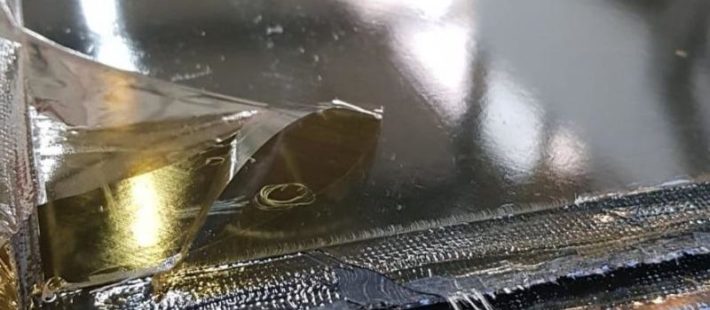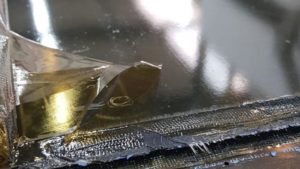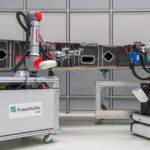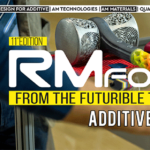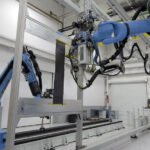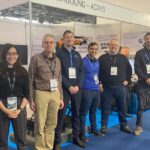KVE Composites Group and Rescoll cooperate in GKN Fokker-led project to develop micromechanical characterization of thermoplastic co-consolidated joints for aircraft fuselages.
The first laminate made from Toray Advanced Composites’ LM-PAEK unidirectional (UD) tape for the Mecatesters Clean Sky 2 project has been autoclave processed at the ThermoPlastic composites Research Center (TPRC, Enschede, Netherlands). This is the first of many laminates that will be produced, welded and tested as part of this 30-month project (JTI-CS2-2018-CFP08-LPA-02-25) within the Clean Sky 2 Large Passenger Aircraft initiative. Mecatesters aims to validate induction welding and conduction welding of thermoplastic composite laminates made from UD tape for industrialized aircraft applications.
Launched in April 2019, KVE Composites Group (The Hague, Netherlands) and Rescoll (Pessac, France) are working with the Mecatesters project leader, GKN Fokker (Hoogeveen, Netherlands), to create a greater level of understanding of the micromechanical behavior of the welded interfaces for UD tape-based laminates, an understanding which is currently limited to carbon fabric-based laminates. Issues such as aging, healing, processing parameters and durability need to be investigated in greater detail in order to develop a coherent approach. This is a key step in the progression of such technologies to widespread use in the aerospace sector.
This project will investigate many aspects of thermoplastic joining using what have been identified within Clean Sky 2 as the two most promising and mature thermoplastic welding methods for aerospace carbon fiber reinforced thermoplastic composites: induction welding and conduction welding.
Induction welding was pioneered and continues to be developed by KVE Composites Group for continuous welding of aerospace structures. It is used commercially by GKN Fokker for production of Gulfstream G650 and Dassault 6X rudders and elevators and by Aviacomp for welding fuel tank access panels for the Airbus A220.
Conduction welding has been developed by GKN Fokker within the TAPAS-2 project for spot welding applications. The main aim is to evaluate and validate these two welding methods for typical fuselage thermoplastic components based on UD carbon fiber/LM-PAEK tapes, and to develop a comprehensive understanding of their micromechanical behavior.
In order to reach this goal, four key objectives have been established, which will make the overall Mecatesters project realistic and achievable within the proposed 30-month timeframe:
- Evaluate the effect of surface conditions on the welded interface. A detailed examination of different surface types will provide clear guidelines for production and maintenance with respect to the surface state
- Examine the effects of aging on the durability of UD carbon fiber/LM-PAEK parts. The evaluation of aging on the durability of UD carbon fiber/LM-PAEK parts will provide valuable information to establish suggested maintenance intervals, engineering tolerances and lifetimes
- Perform a process window comparison for welding methods. Two welding method are selected and further investigated in order to provide an industrially suitable, high-performance and high-quality solution for thermoplastic welding of UD carbon fiber/LM-PAEK parts.
- Perform mechanical testing to validate welded joint performance. The Mecatesters project will provide a detailed analysis of the microstructural behavior of welded thermoplastic assemblies in order to select and apply the most optimal joining technology.
More information: www.rescoll.fr, www.kve.nl, www.gknaerospace.com, www.tprc.nl
Source: Jec Composites


